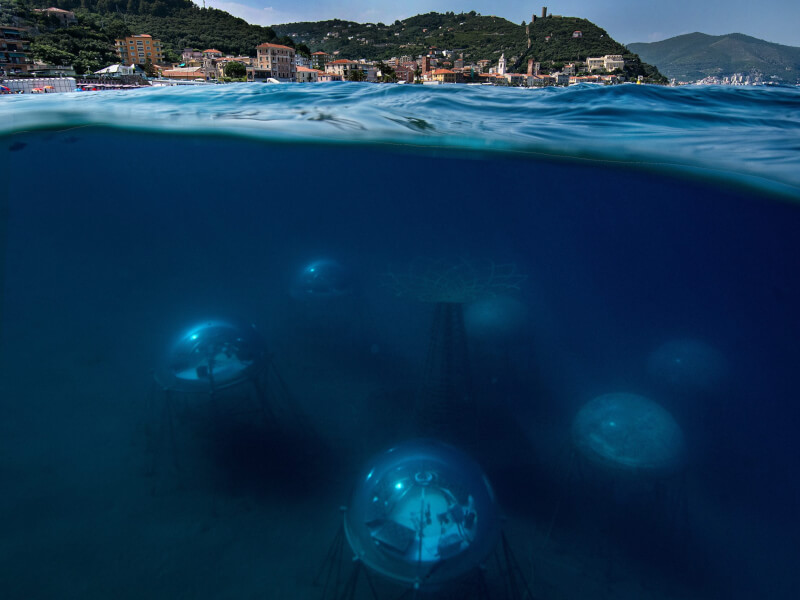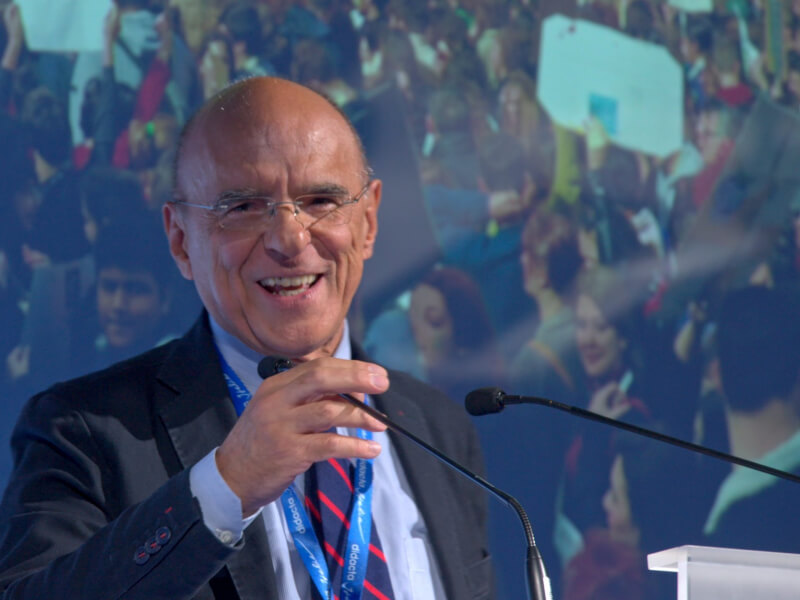22 June 2023 – The recent dramatic floods in Emilia Romagna are yet another sign of the impact of climate change. We know these extreme whether events will become more and more frequent.
However, our brains are not wired to connect them with their cause: the climate breakdown driven by the slow build-up of invisible CO2 gas in the air. Psychology shows how we – especially in the rich world – avoid seeing the impacts that our current economic model have on the stability of our Earth.
Still, the science is clear. The climate is changing rapidly. Today our planet is 1.2°C hotter than in the early 1900s. If, or when, the 1.5C threshold is crossed we may risk irreversible collapse of ice-shelfs in Greenland and Antarctica. This may cause many meters of sea level rise. We can only imagine the devastating impacts in a country like Italy.
Evidence indicates that not just the climate, but six out of nine planetary boundaries that keep Earth’s life-supporting systems stable have been pushed into the high-risk zones of irreversible decline, driven by the wasteful ways we (particularly the richest 10%) produce and consume materials.
This should be enough for us all to pause and reset our economies. But psychologically we distance ourselves from the big picture, and automatically focus on the near, personal issues of today to just a few months ahead.
There is no reason to surrender to cynicism or despair. Nor to denial or delays. Rather, we should look the problem into the eyes, and apply known solutions to reverse the drivers.
There is hope. The transition should be from an unhealthy economic system, that produces CO2, destroys nature, and worsens inequality, to a healthy and green economy, that reduces CO2, restores nature and promotes equity.
This is the central message of the book Earth for All: A Survival Guide for Humanity (Una Terra per Tutti) which I co-authored with a group of climate scientists and economic thinkers. It is a major source of inspiration for this year’s Green & Blue Festival.
We need, however, to upgrade our economic system now, in this decade. Nothing less than the fastest economic transition in history will allow us to ensure a good life for all on a relatively stable planet.
In Earth for All, we developed a system dynamic model with more than 700 carefully selected variables. We built on existing data and causal relationships from 1980-2020 and projected them till 2100. We then explored different scenarios to understand how different policies are likely to affect human well-being, societies, and Earth. We use it to answer questions like: what happens if we phase out fossil fuels quickly or slowly? What happens if we redistribute wealth more fairly? Or, what happens if we reduce the debt of low-income countries to support their energy transition?
We then focused on a business as usual scenario, called Too Little Too Late, and a scenario called A Giant Leap.
The Too Little Too Late scenario is essentially the road the world is on. Some progress in some areas, but not enough. In this scenario, we will cross the 2°C climate limit within a few decades and we destabilise the Earth. Future generations have to clean up our mess.
The second scenario is the Giant Leap. We wanted to identify the smallest set of actions to reach as many Sustainable Development Goals as possible, whilst maintaining global temperature stable. We conclude that nothing less than the following five extraordinary “Turnarounds” are needed:
- Ending poverty.
- Addressing inequality.
- Achieving full gender equity.
- Transforming the food system and the way we eat.
- Transitioning to clean energy.
In this scenario, poverty ends a generation earlier than in Too Little Too Late. We reach net zero CO2 emissions by 2050. The economic model everywhere is circular and regenerative. Material overconsumption is reined in. And we see a significant redistribution of wealth. This would reduce social tensions and see wellbeing rise in all world regions. Finally, wellbeing indicators replace GDP as the main compass of our economies.
The Giant Leap scenario is no utopia, but something that can be achieved with political will and popular support. The investment needed is to move only 2-4% of our GDP per year to implement the turnarounds. Every country – including Italy – needs to tailor the turnarounds to its unique conditions. But now is the time to accelerate from small steps to a real leap.






